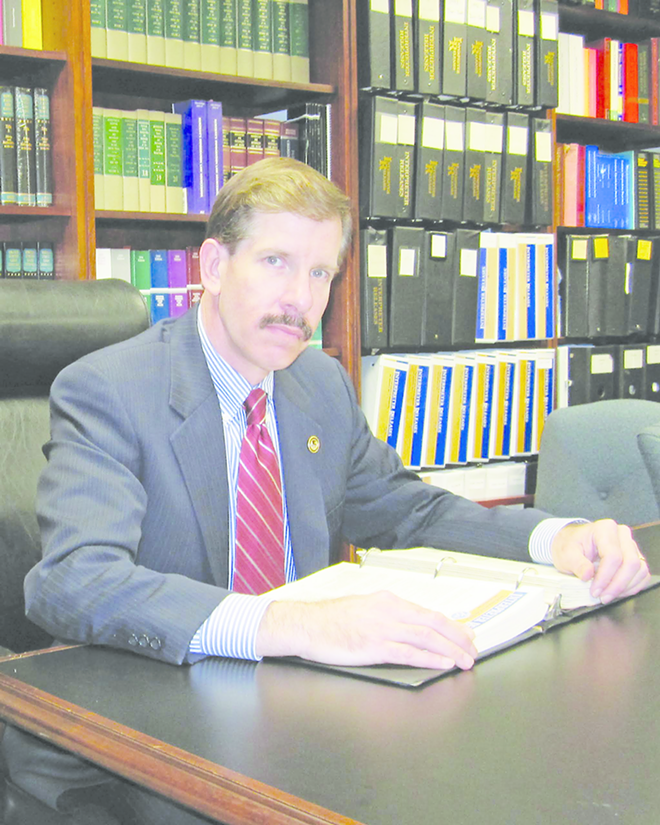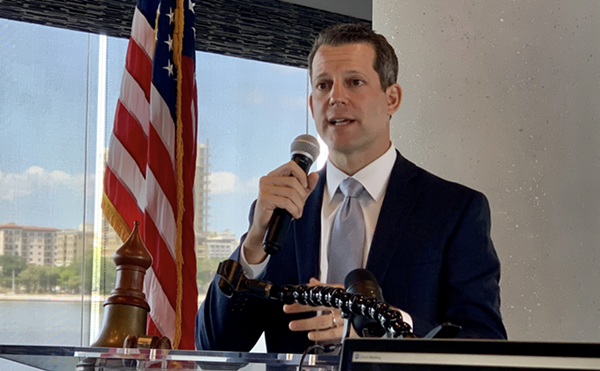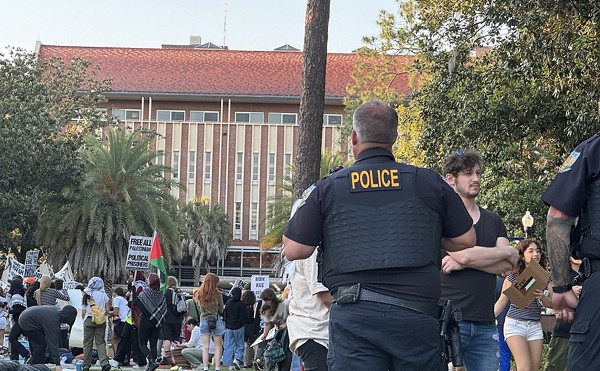
As far as job descriptions go, few include tasks stranger or more dramatic than confronting a former guard at Auschwitz on a windy day in Chicago.
That’s the kind of thing Eli Rosenbaum has done as the U.S. Justice Department’s longest-running special investigator of human rights violators living in the United States. A prosecutor at the highest level, Eli Rosenbaum has tracked down, deported and convicted more Nazis than anyone else in the country.
Most of them were old men by the time they were found, long settled into life in America.
“We were late in the game,” he told CL.
Investigations into WWII war crimes did not begin until three decades after the war, when Rosenbaum was an intern at the Justice Department’s Office of Special Investigations.
“I was that intern that never left,” he joked.
Hundreds of cases later, he is now the department’s Director of Human Rights Strategy and Policy. On Thursday, Feb. 26 at the Mahaffey, the Florida Holocaust Museum will honor the famed Nazi hunter with the Loebenberg Humanitarian Award at its gala, “To Life: To Justice,” which honors the millions of innocent men, women and children who suffered or died in the Holocaust. There, he’ll speak to the audience about his work — work which he says often felt surreal.
“It always seemed incongruous to me, to be sitting in someone’s house, in a seemingly safe environment, in the greatest democracy in the world, speaking with someone that decades earlier perpetrated Nazi crimes against humanity,” he said.
Among the most high-profile cases he handled was that of former Austrian president Kurt Waldheim, who was also the top officer at the United Nations.
“As the UN Secretary General, Kurt Waldheim used to call himself the chief human rights officer of planet earth,” Rosenbaum recalls.
That is, until he was linked to Nazi war crimes. Despite all of the evidence that came to light in the 1980s, Waldheim was elected president of Austria. Even so, Rosenbaum’s much-publicized exposé led the U.S. to ban Waldheim and his wife from traveling to this country during his term, which ran from 1986 to 1992. Waldheim died in 2007.
The war criminal Rosenbaum encountered with the most vicious allegations against him was Ivan Demjanjuk, who was accused of serving as a prison guard at Treblinka, Majdanek and Sobibor, all death camps in occupied Poland.
Demjanjuk, accused of being an accessory to murder in 27,900 deaths, was living in Cleveland when Rosenbaum tracked him down. Once nicknamed “Ivan the Terrible,” he was living under the alias of “John,” had a wife and three children and worked as an auto mechanic. He spent the rest of his life fighting his conviction on the claim that it was a case of mistaken identity, and died at 91 in 2012 while appealing his guilty verdict.
“It was a battle royale,” Rosenbaum said.
The story of rocket engineer Arthur Rudolph is bittersweet.
Rudolf was in charge of building the Saturn 5 rocket, which was used in the 1969 moon landing. But he was also connected to the use of forced labor at Mittelwerk, a Nazi factory built underground in the Kohnstein, a hill in Northern Germany, to avoid Allied bombing. “He was a Nazi slave master,” says Rosenbaum.
His work even has some local ties.
“The very first case that I ever worked on was in Tampa/St. Pete, so I used to come there with some frequency,” he said. “Jurgis Juodis was his name. He was a member of a German-led Lithuanian mobile killing unit. We ended up prosecuting over a dozen members of that unit. Again, just ghastly crimes, going from town to town, village to village, whipping out more than 50,000 people, in what now is Belarus. Just when we were ready to go to trial, Juodis died. The evidence was extraordinarily strong. It was very frustrating.”
Asked about his active investigations, he declined comment.
“I will tell you, over the years we have been approached by every major network, from 60 Minutes to Dateline, wanting to do that classic fly-on-the-wall story where they will be with us on an investigation,” he said. “Of course the Justice Department doesn’t permit that. Plus these investigations can take a long time; you would have to commit a camera crew for not only months, but potentially years. And it might be that the most important moment — the climax — in that investigation is one of our staff historians sitting in an archive in, say, Poland or Germany, looking at a document, and either saying or thinking, ‘Aha!’ You know? It’s not really great television.”
The most memorable part of his career?
“The experience of meeting Holocaust survivors. These are men and women who have the courage and the deep commitment to see justice done. That propels them to testify, and reopen in court these deep psychological wounds that can never heal.”
Rosenbaum, too, is haunted by the war crimes he has investigated.
“These cases,” he said, “don’t let go of you.”
To Life: To Justice, Thurs. Feb. 26, 6 p.m., Mahaffey Theatre, 400 First Ave. S., St. Petersburg. $200, flholocaustmuseum.org.















